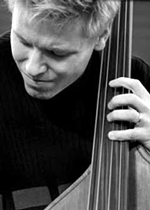- Education
-
Research
Current research
Talent
-
Collaboration
Businesses
Government agencies and institutions
Alumni
-
About AU
Organisation
Job at AU
How groovy are you on the dance floor depends on both the chords and the right rhythm, which should be neither too simple or too complicated. This is shown by research carried out by the Center for Music in the Brain at Aarhus University. This knowledge may in the long term help the rehabilitation of people suffering from Parkinson’s disease.
2019.02.26 |

The researchers are also looking into whether there are differences between those participants who were themselves musicians and those who did not play music. The most notable difference was that when the musicians were asked to assess when they had a desire to move to a piece of music, they preferred the medium complexity to a greater extent than the non-musicians.
Pharell Williams’ hit “Happy” is playing loudly and the dancefloor is packed. For a good reason as this particular song contains just what is needed to make us want to move to music.
The feeling of groove, which is to say the desire to move to music, actually depends on how complex the music is – and this is where “Happy” hits the sweet spot. A new study from the Center for Music in the Brain headed by Professor and Centre Director Peter Vuust has looked into the significance of the complexity of rhythms and chords on our desire to move to music.
In the study, which has just been published on PlosOne, a total of 201 people between the ages of 17-70 completed a web-based survey in which they were asked to grade short music pieces according to whether they liked what they heard and whether they experienced a desire to move to the music. Both the rhythm and the chords in the music were characterised by either low, medium or high complexity.
It turned out that the participants clearly preferred a medium level of complexity when it came to rhythm, which should be neither too simple or too complicated.
“What’s interesting about the results is that the chords are also important for how much we want to move to the music. This happens indirectly through how much we enjoy the music,” explains Peter Vuust.
The study showed that if the chords have a medium complexity, as is e.g. typically the case in funk and soul music, then the listener has an increased desire to move to the music compared to when the chords are very complex, because we experience the medium complexity as more enjoyable.
The results provide important knowledge about why we move to music.
"Why do people move to music? Studying this is interesting because it’s an area where only a very few animals can mimic us and even then only to a limited extent," says Peter Vuust.
He stresses that the research also has perspectives for patients suffering from Parkinson’s disease.
“Research shows that patients with Parkinson’s find it easier to move to music. In the longer term, we can use this new knowledge to design music which hits the rhythmic sweet spot of these patients, thus potentially helping their rehabilitation,” he explains.
Professor, Centre Director Peter Vuust
Aarhus University, Department of Clinical Medicine, Center for Music in the Brain
(+45) 7846 1617
pv@musikkons.dk